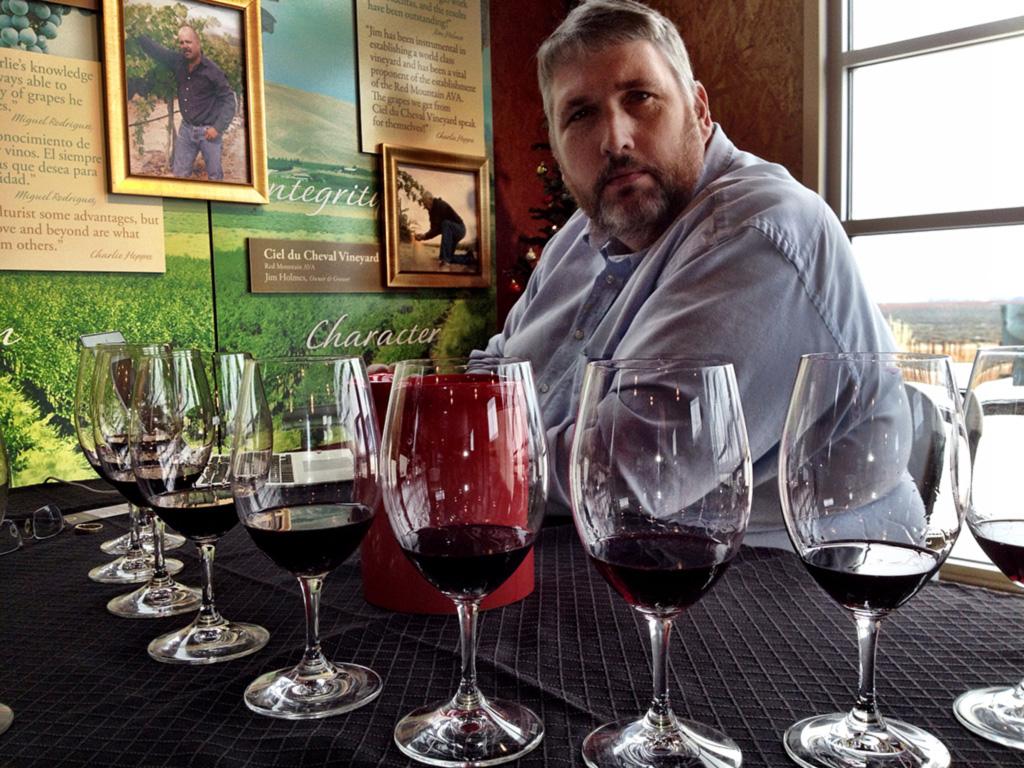
RICHLAND, Wash. — I never grew up thinking I’d one day be considered a wine expert.
I have two distinct wine memories from growing up in a naval town west of Seattle. The first is a box of California red wine that my mom kept in our refrigerator. It might have even been labeled “Chillable Red.”
The other is going to an Italian restaurant called Tony’s, which made outstanding pizza. Each table had a straw-covered bottle of Chianti converted into a candle holder. I was fascinated, but I don’t remember my parents ordering wine.
So there was no wine, beer or cocktail culture in our house growing up. I remember being shocked that my grandma had Olympia Beer, because she was a Baptist Sunday school teacher for nearly 75 years. Turns out she bought the cheapest beer to catch slugs in the garden.
My memories of wine didn’t get much better during college. I went to Western Washington University, which at the time had a reputation for alcohol consumption by undergrads. The beginning of my relationship began humbly, with an occasional bottle of Vitamin R — a Seattle nickname for then-ubiquitous Rainier Beer. The closest I came to wine were Bartles & Jaymes coolers. There would be no Leonetti or Woodward Canyon for me, at least for a decade.
The switch flipped after moving to Eastern Washington and getting married. One summer weekend in the mid-1990s, my wife, in-laws and I ended up at the Prosser Wine and Food Festival. We tasted a rosé that blew us away as novice wine drinkers on a hot day. We weren’t alone because Rosey Outlook sold out at the festival.
A few weeks later, driving through the Yakima Valley on the way to Seattle, we saw an exit for Outlook and a tourism sign to Tefft Cellars. We happily purchased our first case of wine. We accidentally still have a few bottles of Rosey Outlook, although the winery has closed and rosé does not age well.
That trip was pretty fun, so we started visiting wineries on the weekend. I subscribed to Wine Spectator to further our new hobby. I quickly learned Washington, the second-largest wine-producing state, was not guaranteed national coverage.
About the same time, Eric Degerman also caught the wine bug. He was a sports writer at the Tri-City Herald, where I was a copy editor.
During the half-hour between deadline and when the press started, we would yak about wine. Then Wine Spectator came out with a huge article about American Chardonnay without a single mention of Washington. I mentioned this to Eric, who uttered the words, “Someone needs to start a magazine for this area.”
The next day, I walked into the newspaper publisher’s office and said, “I want to start a wine magazine, and I want you to pay for it.”
He replied, “Sure, why not?”
Suddenly, I was a wine magazine editor, but I couldn’t have been further from a wine expert.
At Eric’s suggestion, we signed up for a wine sensory course at the University of California, Davis near Sacramento. It was worth the drive as we learned a great deal about wine — foundational knowledge instrumental to developing our palates and learning how to describe wine in stories and reviews.
Soon, I began to get invitations from wine competitions asking me to be a judge. I mastered the art of swirl, sniff, sip, and spit — and learned to balance a flight of white wines after breakfast, welcome the reds that bookended lunch and still enjoy an actual glass of wine with a nice dinner. Really, it’s all about the spitting.
We had intentionally chosen a regional name for the magazine, not wanting to limit ourselves to Washington state. That brought wine-country adventures in Oregon, Idaho and British Columbia. While it meant a lot of miles on the Subaru Outback, it was rewarding to witness those wine areas as wine tourism was taking off.
A few years later, I got a call from Sasquatch Books in Seattle, leading me to write a book that took advantage of all the traveling, Northwest Wine Guide: A Buyer’s Handbook.
Just as I hadn’t expected to become a wine expert, I hadn’t expected to be recognized for what started as a hobby and had turned into a profession. Journalists are a bit allergic to awards and recognition. We chose the career to be observers and storytellers.
Twice now I’ve been humbled to be honored by the Auction of Washington Wines, which celebrates the wine industry while raising money for Seattle Children’s Hospital and Washington State University’s viticulture and enology program.
The first time was in 2015, when I was named Honorary Chair of the big gala event. And this past August, the Auction’s “Toast!” awards ceremony included me as the 2023 Wine Industry Champion in a list of luminaries: Ted Baseler (Lifetime Achievement Award), Marty Clubb (Award of Distinction), Gary McLean (Star Award), Hedges Family Estate (Healthy Land, Healthy Communities), Eduardo Zaragoza (Vine to Wine) and four Emerging Leaders — Rebecca De Kleine, Devyani Isabel Gupta, Michelle Moyer and Ashley Trout.
The complex coordination of this premier event was led by my longtime colleague Jamie Peha and her talented team. You see, there are many nuances to this honor for me. I suffered a near-fatal stroke in 2016 that left me physically disabled, so I’ve needed to step away from wine judging and significantly dial back my wine writing to instead focus on recovery. It means a lot to be recognized for 20+ years of supporting and advocating for the wine industry by telling stories that help the everyday wine consumer — you — also grow into a wine expert.
And I’m grateful for the unexpected turns in my life that wine continues to bring.

Leave a Reply